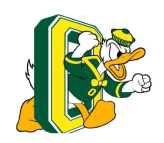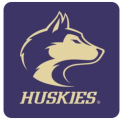Yesterday, alas, we may have seen the psychological power of meta-narratives in action, in a different arena than usual – Allegiant Stadium in Las Vegas, to be more precise.
As my readers know by now, meta-narratives are the story-based frameworks we use to make sense of the world from the perspective of the groups we belong to. Familiar examples include believing we need to make our group (a particular country) “great again,” or that we need to save our group (all of humanity, or the biosphere itself) from further climate-based disruptions, or, in the words of Martin Luther King, Jr., that the long arc of the moral universe bends toward justice. In other words, meta-narratives are beliefs about what’s happening with one’s group over time, the big-picture stories.
Sports teams are also groups, and as any fan of the Chicago Cubs will tell you (although surely they won’t put it that way), sports teams can have meta-narratives too.
 So… speaking of sports teams, I’m a fan of the University of Oregon Ducks. My immediate family (parents, uncle, sister, and sons) and I have all attended the university, which is just a couple miles north of where I live right now. In fact, if I’m correctly remembering when my sister graduated, we’ve had someone at the U of O in each of the past eight decades. I’m the only one in the family who cares about sports, though. Go Ducks!!
So… speaking of sports teams, I’m a fan of the University of Oregon Ducks. My immediate family (parents, uncle, sister, and sons) and I have all attended the university, which is just a couple miles north of where I live right now. In fact, if I’m correctly remembering when my sister graduated, we’ve had someone at the U of O in each of the past eight decades. I’m the only one in the family who cares about sports, though. Go Ducks!!
Oregon’s official rival is Oregon State, a fine university about 40 miles northwest of us, in Corvallis. It’s a gentle rivalry, for the most part – more a matter of teasing than strong feelings. If Oregon isn’t in the picture, we Duck fans generally root for Oregon State to do well. Nobody hates them.
 The University of Washington is where our stronger feelings lie. I couldn’t tell you whether UW fans feel the same, but many UO fans feel a bitter rivalry with the Huskies (that is, the “Dawgs”). I don’t attend tailgate parties – I just watch sports from home, on TV, when I bother – but our local newspapers have long covered the acrimony that Washington fans can experience when they’re in town.
The University of Washington is where our stronger feelings lie. I couldn’t tell you whether UW fans feel the same, but many UO fans feel a bitter rivalry with the Huskies (that is, the “Dawgs”). I don’t attend tailgate parties – I just watch sports from home, on TV, when I bother – but our local newspapers have long covered the acrimony that Washington fans can experience when they’re in town.
College sports teams are organized into conferences, and Oregon and Washington have always been in the same conference. When I was little, our conference was called the Pacific-8 (or “Pac-8”). It also included Oregon State, Washington State, Cal, Stanford, USC, and UCLA. Later it expanded, then it expanded again, and now it’s the Pac-12.
But this is the last year of the Pac-12 conference, at least as we know it. College sports these days are very much about money, and when the Pac-12 wasn’t able to negotiate a new contract with the TV networks, all but four of its teams jumped ship. UCLA and USC were invited to join the Big 10 conference, and Cal and Stanford joined the ACC. (That is, the *ahem* Atlantic Coast Conference. I think that’s funny.) Then Oregon and Washington asked the Big 10 if they would take us too, and they said yes, but only if we would accept about half as much money as the other Big 10 schools, including UCLA and USC. That’s annoying, maybe even embarrassing, although it’s admittedly more than the amount of money we were getting before.
Oregon is great at track & field, of course, and we have also recently had a phenomenal women’s basketball team; the men aren’t bad either. But football is where the money is, and this year both the UO and the UW seemed to be using this year’s football season to make a point.
Both teams got off to a great start. Oregon even scored an incredible 81 points in one of its games. Both teams were undefeated when they played each other on October 14, a very close game that Oregon lost. They both won all the rest of their games, and when they met in the Pac-12 championship game yesterday, Washington was ranked #3 in the nation, and Oregon was ranked #5, with the winner of the game expected to advance to the four-team national championship series.
Back to meta-narratives. They tell the members of a group what it means to be in that group. It forms part of their identity – its stories are their stories.
So, when it comes to the Oregon Ducks football team, what meta-narratives have been in play this year?
The one that comes immediately to mind is Coach Dan Lanning’s pre-game pep talk to the team before the Colorado game. Colorado’s head coach is fancy Deion Sanders, and they’d been living out a “Cinderella story.” Lanning’s response: “The Cinderella story is OVER.” And it was. Oregon crushed them, 42-6. If not for a very late score by Colorado, they would have been shut out altogether.
And that brings us to yesterday’s game. As I noted above, both teams were ranked in the top 5, and both teams were doing phenomenally well. The teams’ quarterbacks are two of the top three contenders for this year’s Heisman Trophy – absolutely first-rate players.
The tricky part was… Oregon was favored to win yesterday’s game. Sure, they were lower-ranked, but they’d been doing exceedingly well, outscoring their opponents by very large margins. Washington had also continued to win, but their play had slacked off, according to the analysts.
I wasn’t there in the locker room, but can’t you picture the Washington coach giving his player a talk about their status as the underdogs? (Under-Dawgs?) Even if he didn’t – these players are people who care about sports. Surely they’d been aware of the predictions. Surely they had conversations with each other about them. In fact, I see their running back Dillon Johnson quoted in the Seattle Times: “We’re just glad that we’re the underdogs and we got that underdog mentality.”
And when game time came around, the Huskies were totally on top of things. Oregon didn’t even score a touchdown until almost halftime and didn’t take the lead until late in the third quarter, but Washington scored soon thereafter, and then again. Oregon got the ball back with less than three minutes to play – and they scored in thirty seconds, so they were only down by three points. If Washington failed on its third-and-nine pass, Oregon would have had another chance… but they made it. Game over. Washington 34, Oregon 31.
I am sure there were many factors involved, some that would be obvious to sports analysts, and others that weren’t. What the players ate in the previous 24 hours, who got a good night’s sleep – all of that matters, at least a little bit.
But we can’t discount the motivation of how a group wants to think about itself. The vindication of an underdog is a powerful storyline.
